Jeffrey Amherst, 1st Baron Amherst of Holmesdale
Jeffrey Amherst was born�at Brooks Place,�Riverhead, Sevenoaks, Kent, on January 29, 1717. His military career started at the age of 14 years old. He is most famous for his actions in the French and Indian War (The�Seven Years' War), as he helped lead the British to crucial victories. On the 13th of September, 1759, General Wolfe was killed when English troops in Canada took the French city of Quebec. Jeffrey�had been Wolfe's�second in command, and��he�then went on and suceeded in�capturing Montreal, which was the next town up the River St. Lawrence. The victories essentially sealed the fate of the French in North America, and brought an end to the war. After the Siege of Montreal, Jeffrey Amherst was knighted in 1760 and became the first British Govener General� of the Territories that became Canada, a post he held until 1763.
Returning to England, he lived at a house he called Montreal, in Riverhead, not far from where he had lived as a boy. He served as Commander-in-Chief of the British Army from 1772�to 1795. He was�made a Baron in 1776 and named 'Baron Amherst of Holmesdale',�then in 1796 he�became�a Field Marshal.�Jeffrey died at his home in 1797 and was buried at St. Nicholas Churchyard, Sevenoaks.
�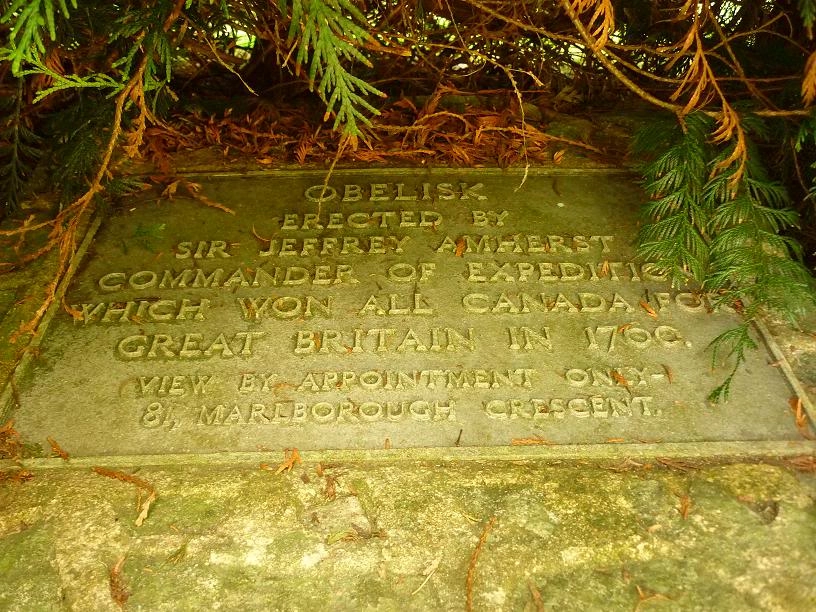
Plaque on the wall outside 81 Marlborough Crescent
�
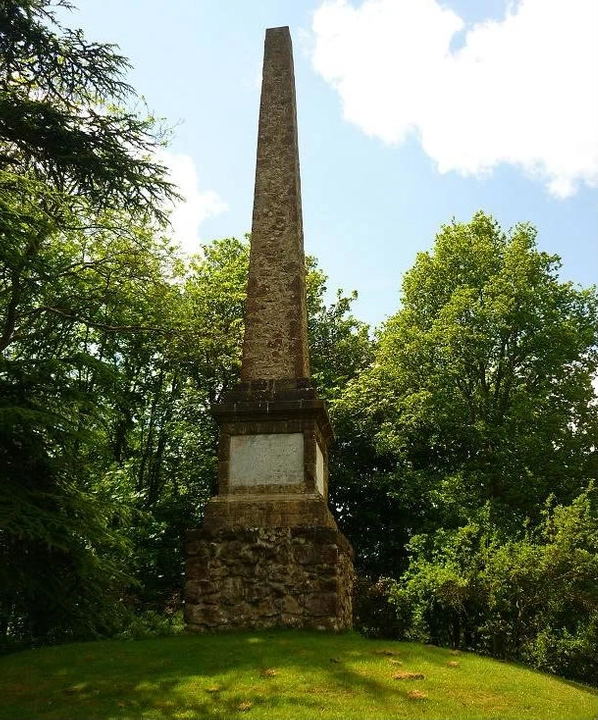
Jeffrey's house�at Montreal Park was demolished in the 1930's, and new housing was built on the site of the Amherst Estate.�However, the�octagonal Gatehouse still�remains, as well �as a Summerhouse, and�an obelisk erected by him still stands on a hill in the garden of 81 Marlborough Crescent, which�is available to view by appointment only from the householders.
�
![]()
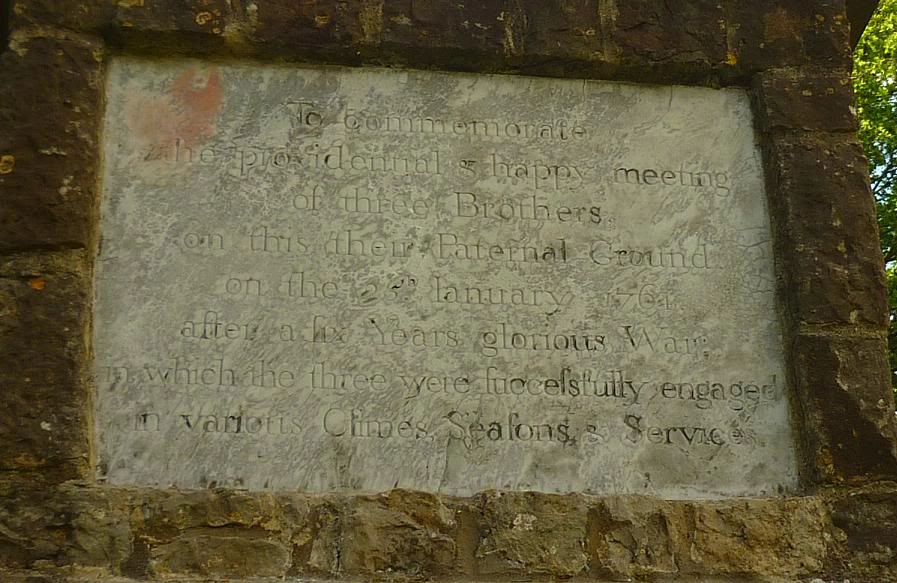
![]()
�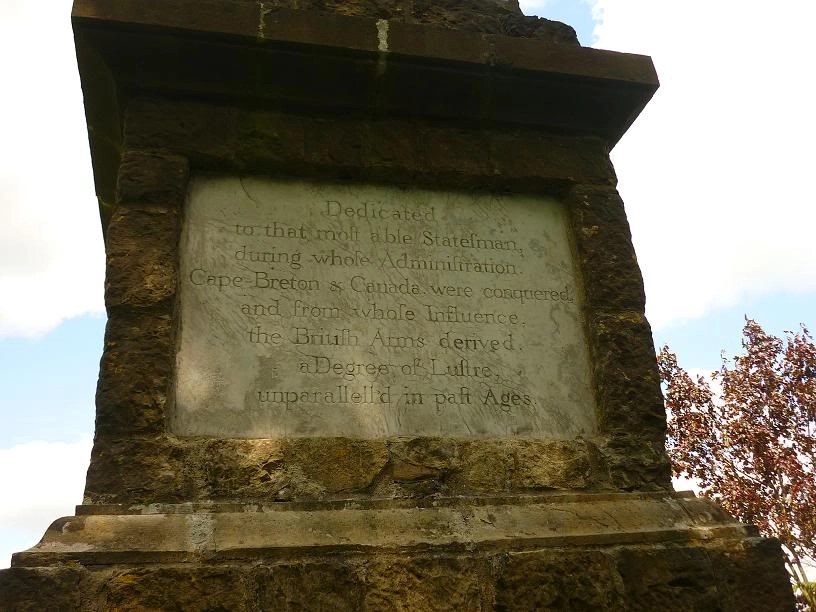
�![]()
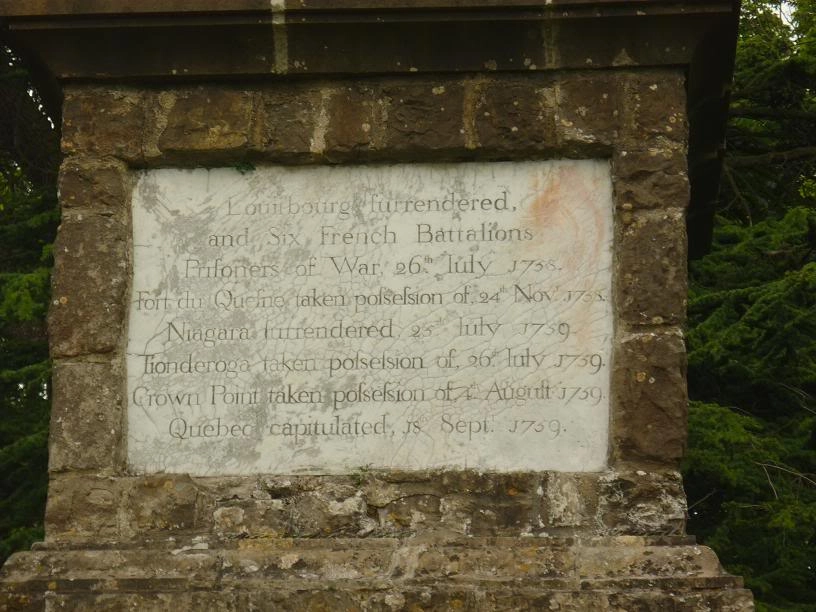
�
![]()
"To commemorate the providential and happy meeting of three brothers on this their Paternal ground on 25 January 1761 after a six years glorious war in which the three were successfully engaged in various climes, seasons and services.
Dedicated to that most able Statesman during whose Administration Cape Breton and Canada were conquered and from whose influence the British Arms derived a Degree of Lustre unparalleled in past ages.
Louisbour surrendered and Six French Battalions Prisoners of War 26 July 1758
Du Quesne taken possession of 24 November 1758
Niagara surrendered 25 July 1759
Ticondcroga taken possession of 26 July 1759
Crown Point taken possession of 4 August 1759
Quebec capitulated 18 September 1759
Fort Levi surrendered 25 August 1760
Ile au Noix abandoned 28 August 1760
Montreal surrendered and with it all Canada and 10 French Battalions laid down their Arms 8 September 1760
St Johns Newfoundland retaken 18 September 1762"
![]()
�
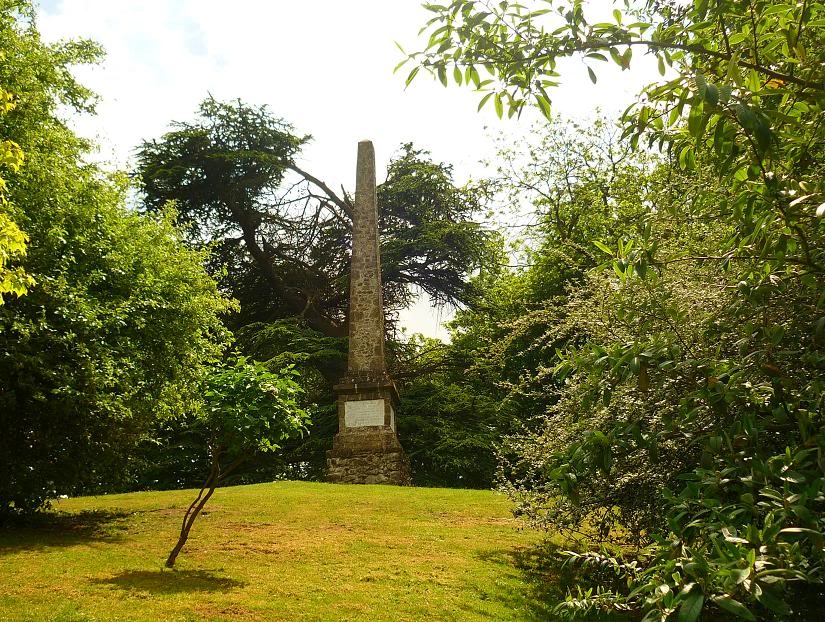
Additional resources
- Non Gamstop Casinos
- Non Gamstop Casino Sites
- Migliori Casino Online
- Casino Italiani Non Aams
- Casinos Not On Gamstop
- Casino Not On Gamstop
- Non Gamstop Casino
- Casino Not On Gamstop
- UK Casinos Not On Gamstop
- UK Casino Sites Not On Gamstop
- Casinos Not On Gamstop
- UK Online Casinos Not On Gamstop
- UK Casinos Not On Gamstop
- Gambling Sites Not On Gamstop
- Non Gamstop Casino UK
- Best Non Gamstop Casinos
- Non Gamstop Casino UK
- Betting Sites
- UK Casinos Not On Gamstop
- Sites Not On Gamstop
- Best Online Casinos UK
- Casino Sites In UK
- Migliori Casino Non Aams
- Sites Not On Gamstop
- Migliori Siti Casino Non Aams
- Meilleur Site De Casino En Ligne Belgique
- Casino Online App
- Migliori Siti Per Poker Online
- Casino En Ligne
- オンラインカジノ 本人確認不要
- 코인카지노
- Casino Sans Verification
- Casino Bonus Sans Depot
- Meilleur Casino En Ligne
- Casino En Ligne France
- Meilleure Casino En Ligne
- Casino En Ligne 2026
- Nouveaux Casinos En Ligne